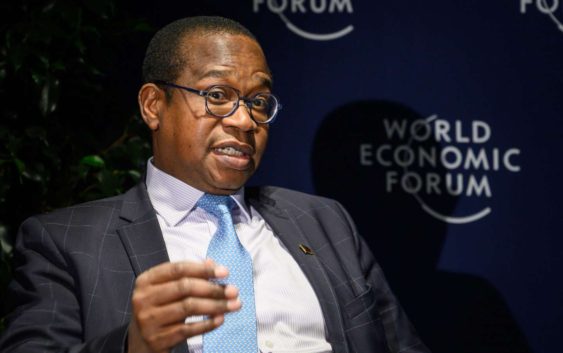- Governor Sanwo-Olu flags off Ojota-Opebi Link Bridge, to be completed in 20 months
- Allow Nigeria go to 2022 World Cup, don’t play qualifiers – Ghana Parliament member tells Black Stars
- There was no second sex tape, Kim Kardashian refutes Kanye West’s claims
- Jaruma Remanded In Prison Over Post On Regina Daniels And Ned Nwoko
- Lanre Gentry confirms paternity of last son with Mercy Aigbe, says ‘He’s my son’ (Photo)
Govt reluctant to hike power tariffs

FINANCE Minister, Mthuli Ncube says government is reluctant to hike power tariffs, but it may consider a commodity linked tariff for mines.
Appearing before the parliamentary committee on Budget and Finance, Ncube told legislators that a tariff increase was highly untenable in the current environment and would only add to inflationary pressures.
“The pressure from Zesa has been to increase the tariff but we have been reluctant to do that. We should hold that back otherwise we would have to add other subsidies to lower that. We are looking at other options. For instance companies that export say in the mining sector their tariff should be linked to the price of the commodity that they export. So there is need for some innovation in terms of pricing models from the Minister of Energy,” Ncube said.
“We are hoping that the re-bundling of Zesa into one entity begins to bear fruit then we can squeeze out the efficiencies which should translate to manageable rates. By addressing the efficiencies within Zesa we can reduce the inflationary impact of what we are seeing on the rates so we do not have to increase rates to cover up for those inefficiencies but rather put in place strategies for making the company more efficient.”
Power utility, Zesa, has been calling for a review of electricity tariffs by as much as 30% to reflect the rise in production costs following the progressive devaluation of the local currency since February.
Monetary authorities in the southern African nation removed the 1:1 peg set against the greenback, allowing a managed float of the local currency.
Tariffs are currently priced at 9,38 cents per kilowatt/hour which translate to about 2US cents when using an average exchange rate of 1:5.
Zimbabwe is currently facing acute power shortages which have seen industry and households go for as long as 8 hours without electricity.
Kariba, the country’s largest power station is producing 358MW down from an average of 542MW because of low water levels.
In February, government approved the merging of various units of Zesa into an integrated company, with the subsidiary companies becoming divisions of the new enterprise.